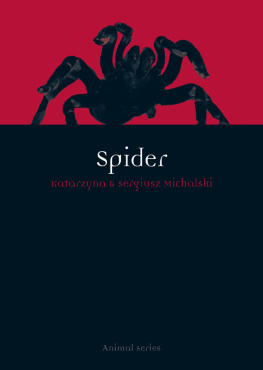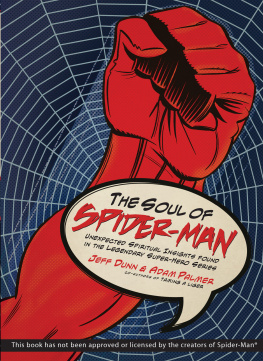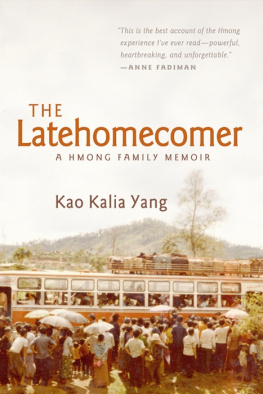Rae Yang - Spider Eaters : a Memoir
Here you can read online Rae Yang - Spider Eaters : a Memoir full text of the book (entire story) in english for free. Download pdf and epub, get meaning, cover and reviews about this ebook. year: 2013, publisher: University of California Press, genre: Non-fiction. Description of the work, (preface) as well as reviews are available. Best literature library LitArk.com created for fans of good reading and offers a wide selection of genres:
Romance novel
Science fiction
Adventure
Detective
Science
History
Home and family
Prose
Art
Politics
Computer
Non-fiction
Religion
Business
Children
Humor
Choose a favorite category and find really read worthwhile books. Enjoy immersion in the world of imagination, feel the emotions of the characters or learn something new for yourself, make an fascinating discovery.
- Book:Spider Eaters : a Memoir
- Author:
- Publisher:University of California Press
- Genre:
- Year:2013
- Rating:3 / 5
- Favourites:Add to favourites
- Your mark:
- 60
- 1
- 2
- 3
- 4
- 5
Spider Eaters : a Memoir: summary, description and annotation
We offer to read an annotation, description, summary or preface (depends on what the author of the book "Spider Eaters : a Memoir" wrote himself). If you haven't found the necessary information about the book — write in the comments, we will try to find it.
Spider Eaters : a Memoir — read online for free the complete book (whole text) full work
Below is the text of the book, divided by pages. System saving the place of the last page read, allows you to conveniently read the book "Spider Eaters : a Memoir" online for free, without having to search again every time where you left off. Put a bookmark, and you can go to the page where you finished reading at any time.
Font size:
Interval:
Bookmark:

SPIDER EATERS
SPIDER EATERS
A MEMOIR
Fifteenth Anniversary Edition
With a New Preface
R AE Y ANG

University of California Press
BerkeleyLos AngelesLondon
University of California Press, one of the most distinguished university presses in the United States, enriches lives around the world by advancing scholarship in the humanities, social sciences, and natural sciences. Its activities are supported by the UC Press Foundation and by philanthropic contributions from individuals and institutions. For more information, visit www.ucpress.edu.
University of California Press
Berkeley and Los Angeles, California
University of California Press, Ltd.
London, England
1997, 2013 by The Regents of the University of California
First paperback printing 1998
ISBN: 978-0-520-27602-4
eISBN: 9780520955363
An earlier edition of this book was catalogued by the Library of Congress as follows:
Library of Congress Cataloging-in-Publication Data
Yang, Rae, 1950
Spider eaters : a memoir / Rae Yang.
p. cm.
ISBN 0-520-21598-2 (pbk.: alk. paper)
1. ChinaHistoryCultural Revolution, 1966-1969Personal narratives. 2. Yang family. 3. Peking (China)Biography. 4. Yang, Rae, 1950- . I. Title.
DS778.7.Y42 1997
951.05'092dc20
[B]96-31622
CIP
Manufactured in the United States of America
22 21 20 19 18 17 16 15 14 13
10 9 8 7 6 5 4 3 2 1
In keeping with a commitment to support environmentally responsible and sustainable printing practices, UC Press has printed this book on Rolland Enviro100, a 100% post-consumer fiber paper that is FSC certified, deinked, processed chlorine-free, and manufactured with renewable biogas energy. It is acid-free and EcoLogo certified.
To my dear Aunty, Tian Xi Zben,
my grandmother, Zhang Hui Zhen,
and my parents
Many historic lessons were obtained through tremendous sacrifice. Such as eating foodif something is poisonous, we all seem to know it. It is common sense. But in the past many people must have eaten this food and died so that now we know better. Therefore I think the first person who ate crabs was admirable. If not a hero, who would dare eat such creatures? Since someone ate crabs, others must have eaten spiders as well. However, they were not tasty. So afterwards people stopped eating them. These people also deserve our heartfelt gratitude.
Lu Xun (1881-1936)
Contents
Preface to the Fifteenth Anniversary Edition
It makes me sad that, forty years after the Cultural Revolution, the topic is still taboo in China. Serious discussion about this historical event, which involved millions in the 1960s and 1970s, is still unattainable.
As a result, young people born after the Cultural Revolution know next to nothing about it. When I asked my Chinese students at Dickinson College, they told me they knew about it. It was in their history book.
What does the book say? I asked them, surprised.
It says: due to mistaken decision(s) made by the country's leader(s), the Cultural Revolution was a ten-year-long catastrophe. (Here the Chinese sentence does not reveal if the nouns are singular or plural.)
That's it?
That's it.
But the Cultural Revolution I lived through was a lot more complex. It meant entirely different things for different groups of people: the lite, the small potatoes, the old, the young, those who had revolutionary families to brag about, and those whose families were condemned ... Some benefited from it. Others suffered unspeakable losses. How can it be summed up with a one-sentence conclusion?
As for those who lived through the Cultural Revolution, many have joined the ancients. Those who are still alive have, after four decades, either revised their memory conveniently or lost the bulk of it. The vivid details are washed away by the relentless torrent of time. Tell me about the transient nature of our memory! From my own experience now I understand.
Therefore I am glad that I began to write Spider Eaters in the early 1980s, only a few years after the Cultural Revolution was over. My memory was still fresh. For this, I should thank America, because I would never have written such a memoir and confessed that I had beaten people and raided homes in 1966, if I had stayed in China. I'd have gotten myself into big troubles. Maybe that's why, to the best of my knowledge, up till now only two former Red Guards have admitted that they beat someone. Who would understand me if I were to tell them that I committed those crimes out of my best intentions for mankind? Meanwhile, of course, I was also driven by fear. I was eager to display that I loved Chairman Mao. I tried to be more revolutionary than others.
Tom Tymozcko is the one I should really thank for this book. I would not have written it had I not met him in 1981 and had we not shared stories about our pasts. In that year I was accepted by the University of Massachusetts at Amherst as a graduate student. When the university gave me options about my housing, I chose a host family. I wanted to learn more about American culture and society. I was eager to improve my English. At that juncture, none of us Chinese students knew how long we would be allowed to stay in this country. The gate of China had just opened up.
The host family I got was a family of five. The couple was in their thirties. They had three little children. The family lived in a gigantic house on the outskirts of Northampton in Massachusetts. Tom, my host, was a professor at Smith College. It turned out that he was extremely curious about my experience in China, especially during the Cultural Revolution. That was because China had been cut off from the rest of the world for more than three decades before our group of students and visiting scholars came out.
My memory of the Cultural Revolution changed as soon as Tom and I started talking. Some episodes, forgotten a long time ago, came back to my mind. Simple conclusions I had accepted became questionable. Experiences I shared with millions grew personal when I tried to explain them to Tom. I had to look deep into my own heart and mind.
Before I left China, I was convinced that I had been a pure victim of the Cultural Revolution. For ten years, I had wasted my time in the countryside and in a factory. As a result, I never attended high school nor college. Then my mother died suddenly on January 7, 1976, one day before Premier Zhou Enlai died. The country was in chaos. No one knew what disease killed her. Two years later, my dear Aunty left us. My family fell apart...
But that was not what Tom wanted to hear. He told me that the baby boomers in this country were inspired by the Red Guard movement in China. When the young people here rebelled against authorities, many studied the Little Red Book, quotations of Chairman Mao. Tom was one of them.
That was the first time I heard the term baby boomers. I realized that the Red Guards were the baby boomers in China. When Japan surrendered in 1945, people returned home. Families were reunited. Babies were born. This trend only intensified after the civil war between the Communists and the Nationalists ended in 1949. The baby boom in China, however, came to an abrupt end in 1959 when the country was hit hard by a large-scale famine. Millions in the countryside starved to death. Everybody was hungry in the cities. The birth rate dropped precipitously. Three years later, the boom resumed. But the children born after the famine were too young to experience the Cultural Revolution. To us, they belong to a different generation.
Next pageFont size:
Interval:
Bookmark:
Similar books «Spider Eaters : a Memoir»
Look at similar books to Spider Eaters : a Memoir. We have selected literature similar in name and meaning in the hope of providing readers with more options to find new, interesting, not yet read works.
Discussion, reviews of the book Spider Eaters : a Memoir and just readers' own opinions. Leave your comments, write what you think about the work, its meaning or the main characters. Specify what exactly you liked and what you didn't like, and why you think so.

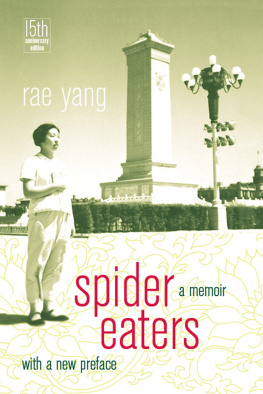
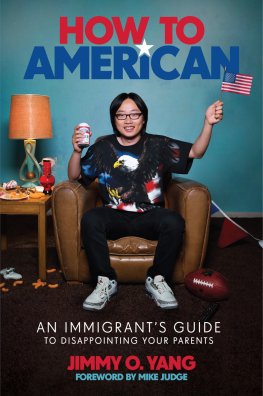

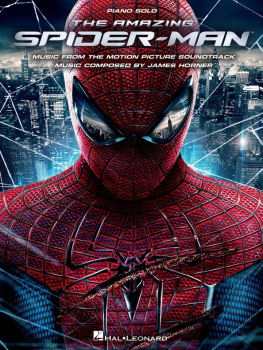
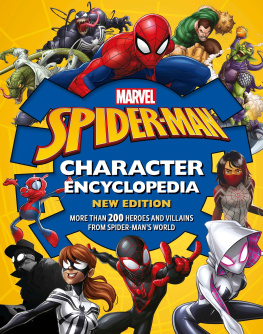
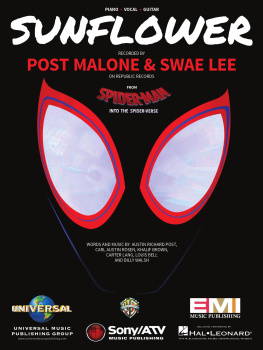
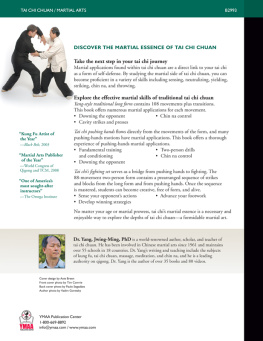
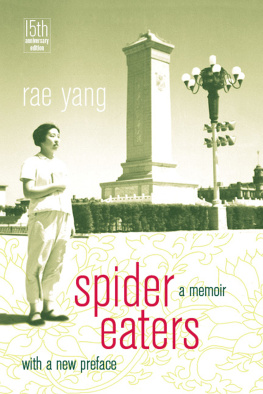
![Yang - The latehomecomer: [a Hmong family memoir]](/uploads/posts/book/165016/thumbs/yang-the-latehomecomer-a-hmong-family-memoir.jpg)
